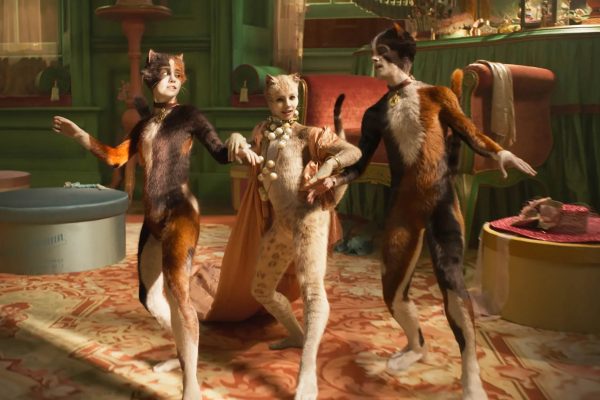There are three rules for avoiding a cinematic flop. Rule one: don’t pick a title that is boring, misleading or hard to pronounce. The title wasn’t the only thing that was bad about the misfiring romantic drama Gigli (2003), starring Jennifer Lopez and Ben Affleck, but the fact that cinemagoers weren’t sure if they should be asking for ‘two tickets to Giggly’ didn’t help. Synecdoche, New York (2008) and The Hudsucker Proxy (1994) had more people reaching for their dictionaries than their wallets. But what about a title that has nothing whatsoever to do with the story?
This brings us to rule two: never give a director carte blanche. After William Friedkin won Oscars for The French Connection (1971) and broke box office records with The Exorcist (1973), Paramount pretty much let him off the leash, even down to the choice of the title for his next film, which he dubbed Sorcerer (1977). Nice one, thought fans. Something along the lines of The Exorcist, perhaps, mixing diabolical forces with titillating gore? Well, no. The film turned out to be a remake of the classic French thriller The Wages of Fear (1953). There was no sorcerer.
Friedkin happened to have been listening to the Miles Davis album Sorcerer a lot at the time. He just liked the word. He later recalled, ‘I thought anything I did at that point would work.’ In the event, half his crew came down with amoebic dysentery, gangrene or malaria during the excruciating shoot in the wilds of the Dominican Republic. He lost his line producer after the man’s wife informed him that she would divorce him unless he quit. It was bad luck that, later that year, Star Wars came out and sucked up all the oxygen left in the market.
Rule three: avoid water and cats. What’s wrong with water? It’s unpredictable, which can send costs spiralling. Witness Waterworld (1995), in which Kevin Costner plays a man with gills, or the pirate hokum Cutthroat Island from the same year, or Speed 2: Cruise Control (1997), which also flouts rule one: its title is boring. Actually, it’s worse than boring. It’s baffling. ‘Speed’ speaks for itself. But ‘Cruise Control’? That’s a safety feature. They might as well have called it ‘Speed 2: Automatic Pilot’.
And what’s wrong with cats? This is more mysterious, but feline failings crop up repeatedly in Box Office Poison, Tim Robey’s exhilarating whistlestop tour of some of the biggest financial disasters in Hollywood history. They go back to Queen Kelly (1929), the pervy mega-turkey that tanked Gloria Swanson’s career. There was a scene in which her co-star Seena Owen grew tired of being naked and was handed a cat to cover her breasts. The cat began to scratch her. White mittens had to be placed over its claws.
One of the joys of this book is the excuse it offers to rewatch, or catch for the first time, some of these stinkers. My ten-year-old son and I relished a double bill of Speed 2 (surprisingly slow) and the oddly diverting Catwoman (2004), a superhero fiasco in which Halle Berry is drowned by bad guys, then randomly revived and given feline powers and penchants by a magic cat. There’s a scene, which cannot be unseen, in which someone hands Berry a ball of catnip and she rubs it all over her face in ecstasy.
Yet the mother of these movie monsters is Cats (2019), an adaptation of the hit musical, which has no redeeming features. Who would have thought that anything could ever happen that would make you feel sorry for Andrew Lloyd Webber? Yet one’s heart can’t help but go out to the old luvvie, whose kitsch masterpiece was put through the wringer of Hollywood half-wittedness. The ordeal was so dire that he bought himself a Havanese puppy named Mojito as an emotional-support dog. When he explained in an email to an airline that they should make an exception to their no-dogs policy and let him travel with Mojito because of ‘what Hollywood did to my musical Cats’, he received the sympathetic reply ‘No doctor’s report required.’
These three rules, note, are not taken from Box Office Poison. They are built out of the material it provides. In fact, my main criticism of this generally enjoyable book is that, despite the experience the author has accrued in a quarter-century of reviewing films for the Daily Telegraph, he offers little in the way of an overarching thesis. Some of his twenty-six picks sound terrible: Nothing But Trouble (1991) and Supernova (2000), for example. Yet others are presented as undervalued masterpieces. Robey has time for Sorcerer, for instance, which he describes as ‘peak Friedman’. And he reveres Charlie Kaufmann’s lugubrious Synecdoche, New York: ‘I stumbled out of it sobbing on a first watch and could barely compose myself for hours.’
This all makes for some welcome variation in tone. Yet if even brilliant films can torpedo a studio, we are steered towards agreeing with the cunningly Socratic, albeit somewhat disappointing, observation of the screenwriter William Goldman, which is probably the most-quoted line ever about the movie business: ‘Nobody knows anything.’

